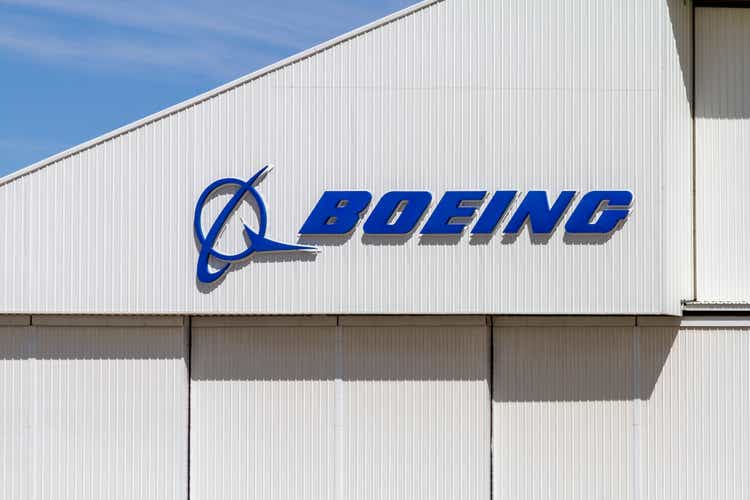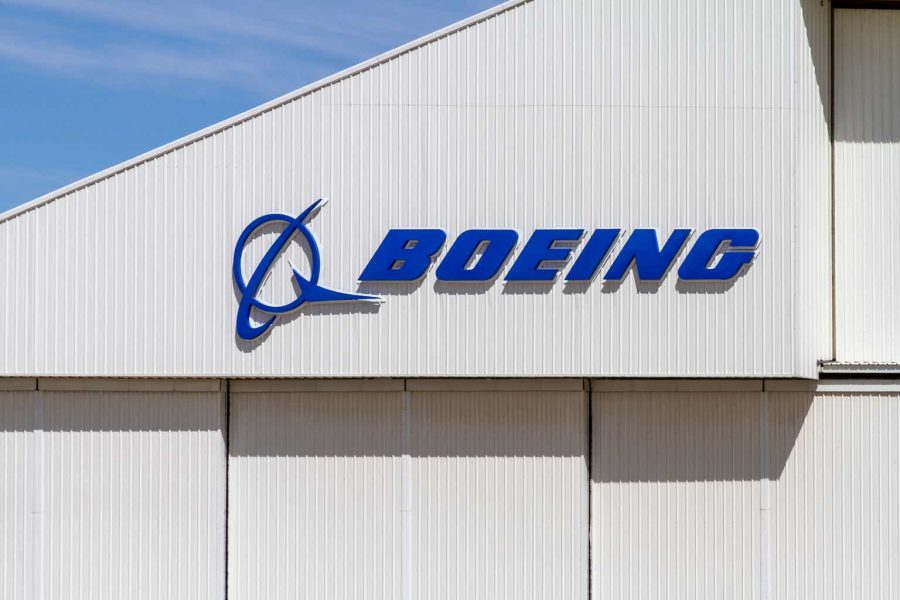Summary:
- The Boeing Company’s shares have fallen to new lows following the release of the first quarter results.
- The company continues to face challenges, including product quality issues and the financial consequences of a shareholder value-focused strategy, yielding a huge negative free cash flow number.
- Despite a large backlog, Boeing is still incurring losses and faces significant challenges in the near future.
sanfel
Shares of The Boeing Company (NYSE:BA) have fallen to fresh lows following the release of the first quarter results, after initial optimism faded quickly. This does not surprise me at all, as I concluded that challenges were continuing and in fact deepening in mid-January.
The company was already off to a difficult 2024 just two weeks into the new year, driven by product quality issues, the overhang of deadly crashes and dealing with the financial consequences of a strategy which focused on “shareholder value.” This focus now haunts the business financially, as the engineering and product quality challenges are no easy fix at all.
Despite a huge backlog and still solid reputation (at least at that time), Boeing continued to incur losses, while some leverage was incurred, making me very cautious at a share price of $210 at the time. Today, with shares trading nearly $50 lower, I am still cautious amidst the cash burn as Boeing’s challenges remain huge, even as the company guides for incremental improvements here, making me very cautious and not yet willing to get involved.
Some Perspective
A $100-$150 stock of Boeing in the early 2010s peaked at $400 in 2019 as the focus on shareholder value seemed to be working, with the business incurring a lot of debt to buy back shares. The company soon found itself into real challenges as the company faced issues with the 737 MAX, as the pandemic was around the corner as well.
Sales fell by a quarter to $58 billion in the pandemic year 2020, with adjusted losses of $14 billion pushing up net debt to $38 billion. Revenues rose a modest 7% to $62 billion in 2021, with the company still incurring a net loss of $4 billion. Revenues rose by another 7% to $66 billion in 2022, as the company still incurred modest losses and reported a $40 billion net debt load.
To put these numbers into perspective, in the financial peak year of 2018 Boeing posted earnings of $10 billion on $101 billion in sales, as a statement of the struggles which the company has faced for some time now, as a replication of such earnings numbers would imply earnings around $15 per share.
While the company saw revenues up in the first three quarters of 2023, growth slowed down during the year, as the company continued to post operating losses. Outside the well-documented issues in the commercial aviation business, the company was hurt by inflationary pressure, quality issues, and also losses in the defense space & security business. Net debt was pretty stable despite losses, as the company actually started to dilute the share base by a pace of 2% per annum. It was ironic to see the company not being able to post profits for a year now, despite a record backlog of $469 billion as of the third quarter.
Moreover, the new issues with the 737 MAX are extremely painful following the midair blowout of a cabin door at Alaska Air Group, Inc. (ALK), as the 737 Family was responsible for the quarter of commercial deliveries so far in 2023. The grounding, but moreover reputation harm, civil damages payable to customers, and quality inspection (hurting production numbers) meant that the road to breakeven results would be longer, as the culture needs a massive multi-year transition.
These conclusions remain the same as the company ended 2023 on a solid note in a seasonally stronger fourth quarter, as the company posted a small non-core profit. Net debt was stable at $40 billion, as the backlog increased to $520 billion, in what seasonally is a strong quarter.
More Bad News
Since the release of the fourth quarter results, the news kept on getting worse, as various planes were involved in incidents, and political scrutiny being on the rise. In fact, it pushed Boeing to acknowledge that it was looking to reacquire its former unit Spirit AeroSystems Holdings, Inc. (SPR), while CEO Steve Calhoun was ousted as well.
In April, the much anticipated first quarter results were announced. First quarter sales fell by 8% to $16.6 billion, with core operating losses of $388 million actually improving slightly on an annual basis. That, however, overstated the achievements, as the company incurred a massive $3.9 billion negative free cash flow number for the quarter, driven by lower deliveries in the commercial unit.
Commercial deliveries were down 36% to 83 units, with revenues down 31% to $4.6 billion, with segment losses posted at $1.1 billion. Somewhat positive was a 6% increase in Defense, Space & Security business to $7.0 billion as the segment turned a loss into a profit of $151 million. Global service revenues were up 7% to $5.0 billion, as segment earnings rose at a similar pace to $916 million.
Net debt was pretty stable at $40.4 billion, yet absolute cash holdings came down in a meaningful way, as the positive news was that the backlog increased slightly to $529 billion. Part of the reason why debt levels were stable was that the share count rose further to 613 million shares, up more than ten million shares from this quarter last year, with the share count up by nearly 4 million shares over the past quarter. Moreover, the company saw customer advances increase by nearly $2.7 billion this quarter alone!
What Now?
After The Boeing Company headline results for the first quarter were a bit stronger than feared, shares initially opened up to $175 per share, but now have come down to $163 per share. This comes as the company still has to acquire Spirit AeroSystems, as it is vital for its production and quality control, as clean and controlled fuselages appear to be the greatest bottleneck in the supply chain here.
The purchase is still in the works, with the investment grade rating of Boeing being critical in all this, as all options for this deal are on the table, including a potential equity issuance.
There were some positives as well, as the company anticipates a meaningful improvement in cash flows in the second quarter, although still expected to yield negative cash flows. For the entire year, the company expects to deliver on free cash flows, driven by a recovery in production and some special items in the second half of the year.
The Q1 conference call really seems to suggest some stability in the business and improvements from here on, but the market seems to disagree. Even if the business can revamp the business and generate $100 billion in sales and post operating profits of $10 billion (matching 2019 results somewhat), after-tax earnings and interest expenses could be seen around $6 billion, at around $10 per share.
That requires significant effort, and even then, the business is quite leveraged, making current valuations still fair at best, as much work needs to be done meanwhile.
While some improvements are to be anticipated, and we might well see a bottom if the market buys into the story, I am still very cautious about The Boeing Company shares. I find no reason to be comfortable buying the dip yet, amidst continued losses here.
Analyst’s Disclosure: I/we have no stock, option or similar derivative position in any of the companies mentioned, and no plans to initiate any such positions within the next 72 hours. I wrote this article myself, and it expresses my own opinions. I am not receiving compensation for it (other than from Seeking Alpha). I have no business relationship with any company whose stock is mentioned in this article.
Seeking Alpha’s Disclosure: Past performance is no guarantee of future results. No recommendation or advice is being given as to whether any investment is suitable for a particular investor. Any views or opinions expressed above may not reflect those of Seeking Alpha as a whole. Seeking Alpha is not a licensed securities dealer, broker or US investment adviser or investment bank. Our analysts are third party authors that include both professional investors and individual investors who may not be licensed or certified by any institute or regulatory body.
If you like to see more ideas, please subscribe to the premium service “Value in Corporate Events” here and try the free trial. In this service we cover major earnings events, M&A, IPOs and other significant corporate events with actionable ideas. Furthermore, we provide coverage of situations and names on request!
